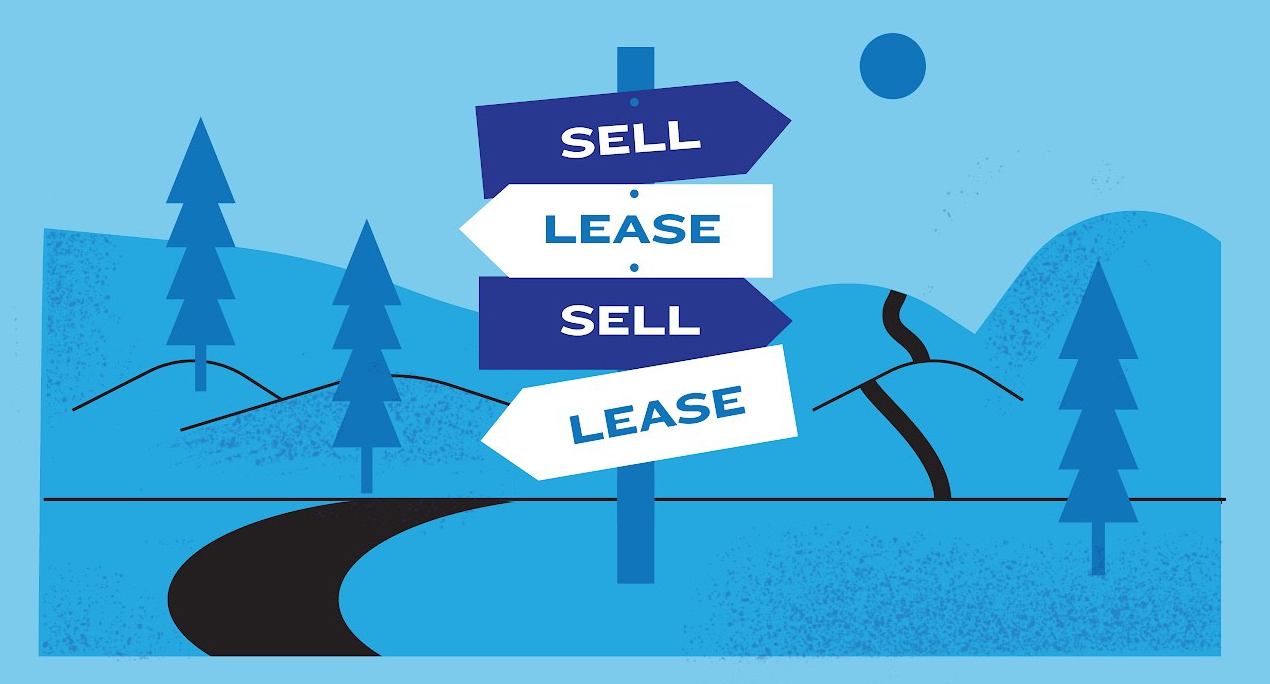Should I Sell or Lease
IPv4 Addresses?
by Lee Howard

With IPv4 securitization in the news and falling sale prices, people responsible for IPv4 addresses are increasingly wondering if the lease market is better for them.
Leasing Returns
The best reason to lease is that it generates monthly recurring revenue that can be reported as operating income. For an asset with often a $0 cost basis, that’s very appealing.
However, leasing prices are around $0.35 – $0.45 per address per month. That’s $4.20 – $5.40 per year. With small block prices around $30 and large block prices above $40, it’s six to ten years before the leasing income will be greater than sale income.
In fact, the present value of money makes it even longer. A capital windfall can give a business a chance to invest in revenue-generating (or risk-mitigating) projects. If a $3MM investment would return 10% per year (the internal rate of return, or IRR), that $40 per address returns $4.00 after the first year, $4.84 the second year, $5.32 the third year, and so on. Paying down debt can be similarly attractive if interest rates are high.
Leasing returns will also depend on the term of the lease(s): short-term leases usually pay more. With a lease term of a few months, lessors perceive a higher risk that addresses will be used for spam or abuse. There’s also a higher vacancy rate: it can often take weeks or months to find a new lessee. A long term lease therefore provides more security and stability, and so lower rates.
Whether leasing or selling will return more depends on the amount of space in question, the actual lease rates, the duration of the lease, and the value of how proceeds will be used.
Market Risks
The leasing market is still fairly small. While the worldwide buy/sell market has hovered around 40MM addresses per year, the leasing market has grown to about 25MM addresses. Cogent recently disclosed that they are leasing over 11MM addresses. Larus reports they have 10MM addresses, IPXO says they have 3MM, and InterLIR says they have 1MM. Comparing those two markets shows a buy/sell market (at $50/address) of $2B per year and a leasing market of (at $4.20/address/year) of $105MM per year.
There are address holders who could flood either market.
Demand is uncertain. In the current lease market, a long-term lessee (recipient) has stability and may spend significantly less over several years, so it can be attractive to lease instead of buy. However, at the end of that lease, they will have to replace the addresses at whatever the market is at the time. They will also have to do the work of renumbering, which can be time-consuming and disruptive. IPv6 and automation can help.
Work involved in Leasing
The recipient of the addresses may need any of five things: reassignment in WHOIS, reverse DNS delegation, letter of authorization (LOA), route object in an Internet Routing Registry (IRR), and/or route origin authorization (ROA in the RPKI system). A good lease manager will help with those, and if they are given administrative access to the account in the regional internet registry (RIR), can do it themselves. However, administrative accounts give full authority to all records held by an organization.
The other essential element is protecting the address holder from reputational damage. The greatest fear of most potential lessors is that the addresses will be used to send spam, and their addresses will be listed in a Reputation Block List (RBL). Many networks use RBLs to reject email, and sometimes other traffic, to protect themselves. Some RBLs make it easier to get delisted than others, so prevention is important. Traditional internet service providers (ISPs) or hosting companies can block outbound spam from their network. A lessor is not in the flow of traffic and has less control.
A good lease manager will monitor the abuse mailbox to watch for early reports, as well as monitoring major RBLs. They will have an escalating abuse response plan, leading to revocation of leases and all of the services that enabled the user to use the addresses.
Worse, if the addresses are used for other nefarious activity, it may tarnish the address holder’s reputation to the public. This is generally only the case for long term, recurring abuse. If recurring complaints are not addressed, the risk increases.
A sale has none of these risks. The transfer process is generally straightforward, and once the transfer is complete, no further work is required and there is no risk to reputation.
Lease or Sell IPv4 Addresses
Ultimately, the best decision between leasing and selling comes down to the unique circumstance of each organization. If they will need the addresses, prefer recurring operating income, and can tolerate the vagaries of the market, leasing may be preferable. If they have low risk tolerance and have good plans for the capital, selling is a better option.